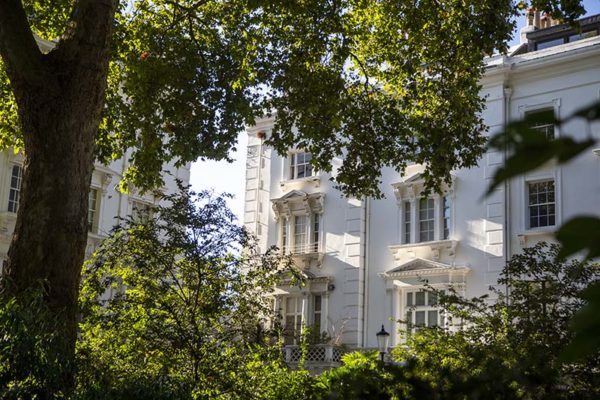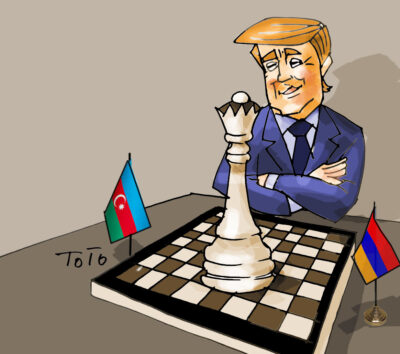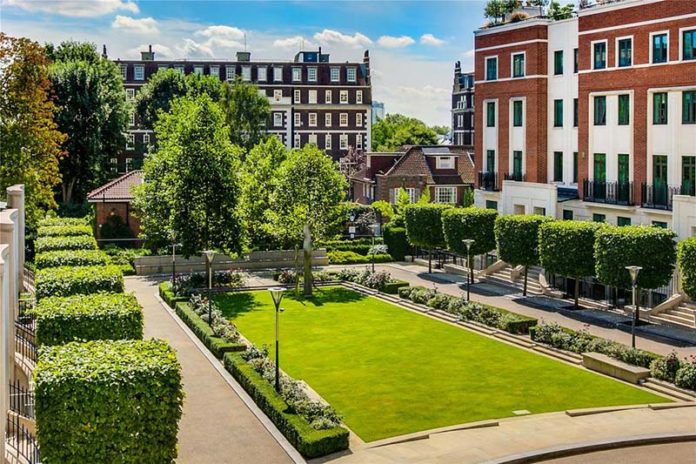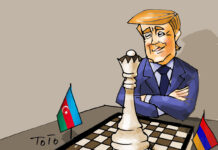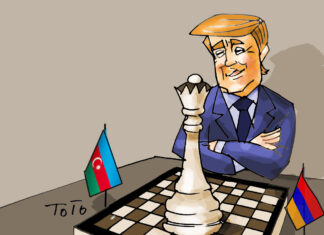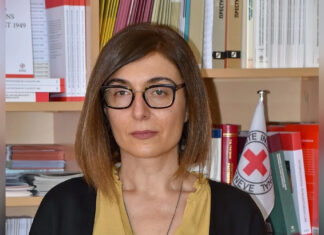By Mark Landler and Stephen Castle
LONDON (New York Times) — On Friday, March 11, the day after Britain blacklisted seven prominent Russian oligarchs, residents of the wealthy London borough of Kensington and Chelsea rolled a washing machine overflowing with fake pound notes in front of a multimillion-dollar townhouse belonging to the family of the president of Azerbaijan.
It was a camera-ready stunt that made a serious point: For Britain to be successful in curbing the flood of dirty money — a phenomenon some call the “London laundromat” — it needs to go further than imposing sanctions on highly visible Russians like Roman Abramovich, the billionaire owner of the Chelsea soccer club.
The Azerbaijani leader, Ilham Aliyev, is one of hundreds of wealthy foreigners who have exploited Britain’s lax regulations to amass property and other assets, often under a web of offshore companies that disguise their ownership. Others have parlayed their fortunes into gilt-edged social status, endowing revered British cultural and educational institutions, or donating money to the Conservative Party.
Targeting these figures will be even more challenging than going after boldface names like Abramovich, whose ties to President Vladimir V. Putin of Russia are longstanding and well documented. But the protesters in Kensington said such an effort was crucial if Britain genuinely wanted to rid itself of the taint of dirty money.
“The crisis exposed the issue of Kremlin-linked money in the U.K., but it’s a much more systemic, global problem, with London sheltering this kind of money,” said Flo Hutchings, who helped found a neighborhood group, Kensington Against Dirty Money. “We hope this situation will have a snowball effect.”
